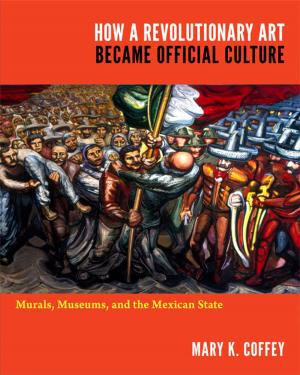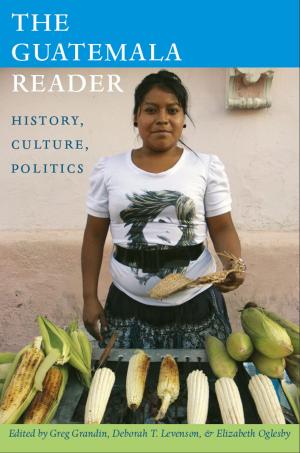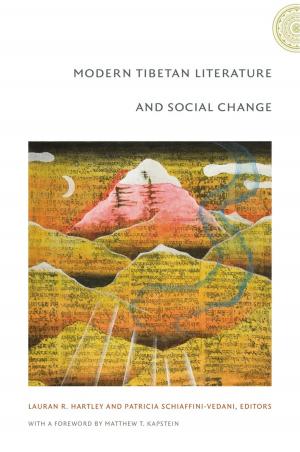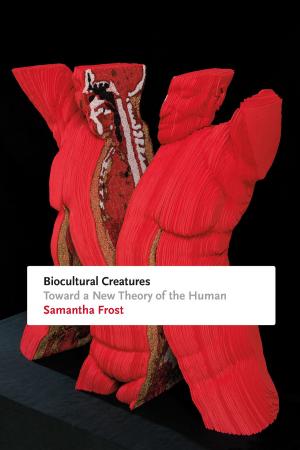The Memory of Trade
Modernity’s Entanglements on an Eastern Indonesian Island
Nonfiction, History, Asian, Southeast Asia, Business & Finance, Economics, Economic History, Social & Cultural Studies, Social Science, Anthropology| Author: | Patricia Spyer | ISBN: | 9780822399421 |
| Publisher: | Duke University Press | Publication: | February 18, 2000 |
| Imprint: | Duke University Press Books | Language: | English |
| Author: | Patricia Spyer |
| ISBN: | 9780822399421 |
| Publisher: | Duke University Press |
| Publication: | February 18, 2000 |
| Imprint: | Duke University Press Books |
| Language: | English |
The Memory of Trade is an ethnographic study of the people of Aru, an archipelago in eastern Indonesia. Central to Patricia Spyer’s study is the fraught identification of Aruese people with two imaginary elsewheres—the ‘Aru’ and the ‘Malay’—and the fissured construction of community that has ensued from centuries of active international trade and more recent encroachments of modernity.
Drawing on more than two years of archival and ethnographic research, Spyer examines the dynamics of contact with the Dutch and Europeans, Suharto’s postcolonial regime, and with the competing religions of Islam,Protestantism, and Catholicism in the context of the recent conversion of pagan Aruese. While arguing that Aru identity and community are defined largely in terms of absence, longing, memory, and desire, she also incorporates present-day realities—such as the ecological destruction wrought by the Aru trade in such luxury goods as pearls and shark fins—without overlooking the mystique and ritual surrounding these activities. Imprinted on the one hand by the archipelago’s long engagement with extended networks of commerce and communication and, on the other, by modernity’s characteristic repressions and displacements, Aruese make and manage their lives somewhat precariously within what they often seem to construe as a dangerously expanding—if still enticing—world. By documenting not only the particular expectations and strategies Aruese have developed in dealing with this larger world but also the price they pay for participation therein, The Memory of Trade speaks to problems commonly faced elsewhere in the frontier spaces of modern nation-states.
Balancing particularly astute analysis with classic ethnography, The Memory of Trade will appeal not only to anthropologists and historians but also to students and specialists of Southeast Asia, modernity, and globalization.
The Memory of Trade is an ethnographic study of the people of Aru, an archipelago in eastern Indonesia. Central to Patricia Spyer’s study is the fraught identification of Aruese people with two imaginary elsewheres—the ‘Aru’ and the ‘Malay’—and the fissured construction of community that has ensued from centuries of active international trade and more recent encroachments of modernity.
Drawing on more than two years of archival and ethnographic research, Spyer examines the dynamics of contact with the Dutch and Europeans, Suharto’s postcolonial regime, and with the competing religions of Islam,Protestantism, and Catholicism in the context of the recent conversion of pagan Aruese. While arguing that Aru identity and community are defined largely in terms of absence, longing, memory, and desire, she also incorporates present-day realities—such as the ecological destruction wrought by the Aru trade in such luxury goods as pearls and shark fins—without overlooking the mystique and ritual surrounding these activities. Imprinted on the one hand by the archipelago’s long engagement with extended networks of commerce and communication and, on the other, by modernity’s characteristic repressions and displacements, Aruese make and manage their lives somewhat precariously within what they often seem to construe as a dangerously expanding—if still enticing—world. By documenting not only the particular expectations and strategies Aruese have developed in dealing with this larger world but also the price they pay for participation therein, The Memory of Trade speaks to problems commonly faced elsewhere in the frontier spaces of modern nation-states.
Balancing particularly astute analysis with classic ethnography, The Memory of Trade will appeal not only to anthropologists and historians but also to students and specialists of Southeast Asia, modernity, and globalization.















